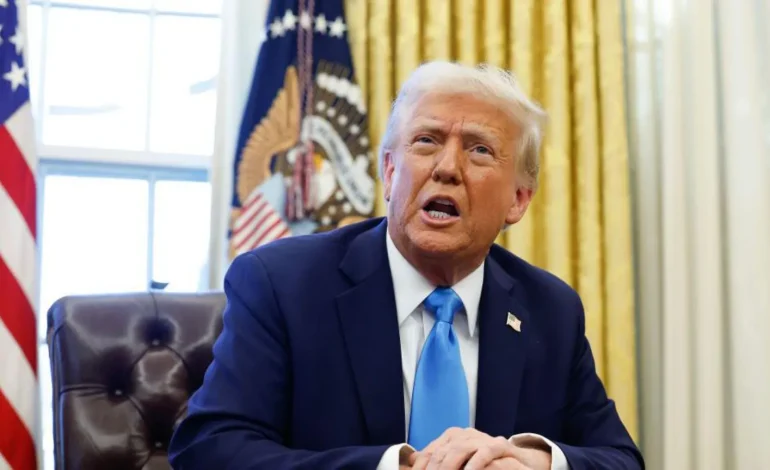US Imposes First Sanctions Against Iran Under Trump’s Renewed “Maximum Pressure” Campaign

The United States has levied a new round of sanctions against Iran, marking the first such action since President Donald Trump’s return to the White House, Al Jazeera reports.
The US Treasury announced the sanctions on Thursday, targeting what it described as Iran’s “oil network” as part of a push to reimpose “maximum pressure” on Tehran.
The sanctions target firms, ships, and individuals allegedly affiliated with companies previously sanctioned by the US. Under former President Joe Biden, the US regularly issued penalties to enforce existing sanctions.
“The Iranian regime remains focused on leveraging its oil revenues to fund the development of its nuclear program, to produce its deadly ballistic missiles and unmanned aerial vehicles, and to support its regional terrorist proxy groups,” said Treasury Secretary Scott Bessent.
Iran has consistently rejected sanctions targeting its oil sector and efforts to confiscate its exports, denouncing them as “piracy.”
According to the Treasury, the sanctions encompass “entities and individuals in multiple jurisdictions,” including China, India, and the United Arab Emirates.
This action follows President Trump’s signing of an executive order two days prior, aimed at reviving his pressure campaign against Iran. This campaign was initially launched during his first term after he withdrew the US from the Joint Comprehensive Plan of Action (JCPOA), an international agreement with Tehran, in 2018.
The JCPOA, established in 2015, would have required Iran to scale back its nuclear program in exchange for the lifting of international sanctions.
While President Biden attempted to revive the deal, multiple rounds of indirect talks with Iran failed to achieve a resolution. The diplomatic efforts were further complicated by the outbreak of the Israel-Gaza conflict in October 2023. Ultimately, the previous administration maintained the existing Iran sanctions and imposed additional penalties.
However, Republicans criticized former President Biden for allegedly failing to rigorously enforce the sanctions and prevent Iranian oil sales, particularly to China.
President Trump’s recent executive order directs US officials to review and tighten sanctions with the aim of “driving Iran’s export of oil to zero.” Thursday’s Treasury actions are considered a response to that directive.
Despite the renewed pressure, President Trump has indicated a willingness to engage in diplomacy with Tehran, expressing openness to reaching out to Iranian officials.
Iranian leaders have consistently denied seeking nuclear weapons. However, Tehran has progressively enriched uranium – a key component in producing nuclear weapons – for years in response to US sanctions.
Israel, a major US ally in the Middle East, is widely believed to possess an undeclared nuclear arsenal.
The State Department expressed its support for the sanctions on Thursday, stating that Washington will not tolerate “destructive and destabilizing behavior.” In a statement, it described Tehran’s oil exports as “illicit.”
However, Iran maintains that as a sovereign nation, it has the right to sell its own oil. Tehran has been a vocal opponent of President Trump’s plan for forcibly displacing Palestinians from Gaza.







